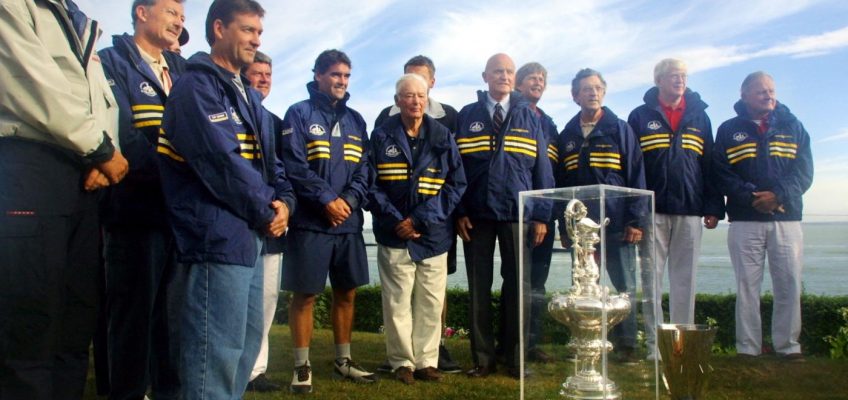The Georgia Board of Elections — which is dominated by election deniers — approved a rule change Monday that will sow chaos into the state’s election process and guarantee that if the November vote is close, we may not know the results of the presidential race for weeks.
They’re playing with fire. By tipping the scales in the swing state to benefit former President Donald Trump, Georgia officials risk creating an election crisis even more turbulent than what we witnessed four years ago.
The rule, made by an unelected panel of citizens, will undoubtedly face legal challenges. But unless blocked by the courts, a disputed presidential election seems inevitable. Polls show that Georgia will be a key battleground state this year, as it was in 2020 when President Joe Biden narrowly defeated Trump. The action taken by the Board of Elections changes the way votes are certified, giving challengers new ways to introduce significant delays and potentially change the results of the final precinct tallies.
The rule bars counties from certifying the vote tallies until officials investigate whether there are discrepancies between the number of ballots cast and the number of people who voted in each precinct. Minor inconsistencies between these numbers aren’t unusual in elections, which are locally controlled, and rarely affect the outcome of a race. But the new rule is an open invitation to Trump-supporting officials to introduce delays that could subvert the presidential election.
The resulting tangle of legal disputes could also jeopardize Georgia’s ability to submit its presidential election results to the federal government by the Dec. 11 deadline. And it would make the recount of the 2000 presidential results in Florida in the race between George W. Bush and Al Gore seem tranquil by comparison.
A disputed election in Georgia is a haunting thought, not just because the prospect of violence is more potent now than it was 24 years ago when the US Supreme Court intervened in Bush v. Gore, but because reaching an unbiased and fair judicial remedy with today’s court seems even further out of reach.
There are fewer than 80 days to go before Election Day and nearly all of Georgia’s elections officials, including Republican Secretary of State Brad Raffensperger, say the rule is a bad idea that will result in confusion and chaos.
But none of that matters to the majority on the five-member citizens board. With the help of the Georgia Republican Party, which orchestrated two board appointments, the little-known panel has become a tool for the Trump machine.
The board includes three of the former president’s allies — Janelle King, a conservative podcast host and former deputy director of the state party; Janice Johnston, who has backed proposals sought by the right-wing Election Research Institute and was greeted like a celebrity at a recent Trump rally; and Rick Jeffares, who has made it known that he would be interested in being appointed regional director of the EPA if Trump wins.
They are “on fire,” Trump exclaimed as he name-checked the three at a rally in Atlanta this month. “Pitbulls fighting for honesty, transparency and victory.”
Three days later, we learned why they drew such accolades. They had introduced a rule change that would allow Trump to raise doubts about the legitimacy of results in November.
The rule is bad idea born out of unfounded conspiracy theories. But it’s only the beginning for Trump’s troops in Georgia. The board will vote Sept. 20 on another rule to interfere with vote counting. This one would require precinct workers to break the seal securing the machine-tabulated ballots after they are cast, and then assign three separate poll workers to hand count all ballots. Their task: to make sure they match the number of ballots recorded by the voting machines.
It’s just another opportunity to revive the false theories of rigged voting machines and USB drives disguised as breath mints.
Promoting all these dangerous changes is the same cast of unsavory characters who have both advised Trump in the past, and who have repeatedly shown they have no respect for the rule of law.
According to reporting by ProPublica, the idea for the certification rule came from Cleta Mitchell, the election attorney who was central to the effort to stop the certification of the Georgia results in 2020 and who was on the call with Raffensperger when Trump urged him “to find” 11,780 more votes for Trump to win the state.
Mitchell has spent the last four years working to engender doubt in election systems in Georgia and other states, so that if Trump loses again, he can declare the vote illegitimate.
Mitchell didn’t make an appearance at the Monday meeting of the Georgia Board of Elections but two of her sidekicks did — Ken Cuccinelli, the former acting deputy secretary for Homeland Security who advised Trump on election policy, and Hans von Spakovsky, manager of election law reform at the Trump-aligned Heritage Foundation who has made a career out of stoking fears about election integrity.
They and other proponents told the board Monday that restricting certification was “common sense” and said — without any evidence — that electronic tabulation machines can be manipulated and that hand-counting ballots is no different than counting cash in a till at the close of the day.
It’s a quaint image, but there’s a reason we replaced error-prone human counting of cash — and ballots — with machines.
Unfortunately, the Georgia board’s idea is gaining traction among election deniers across the country — although the state is still an outlier. At least 19 election-denying county election officials have objected to certifying elections in Georgia since 2020, according to a statewide survey by The Atlanta Journal-Constitution. Fortunately, the Georgia Supreme Court has repeatedly ruled that local officials don’t have a choice and that certifying elections is a mandatory duty, not a discretionary one.
But that’s little consolation in an election year where the results in a close presidential race could hinge on a half-dozen swing states. Georgia could be this year’s Florida.
Mary Ellen Klas is a politics and policy columnist for Bloomberg Opinion. A former capital bureau chief for the Miami Herald, she has covered politics and government for more than three decades.
Related Articles
Robert Burgess: The Harris economic agenda has two gems worth mining
Lynn Schmidt: Harris’ about-face on border issues is classic flip-flopping. Will voters care?
Ana Zamora: Voters don’t want to hear Trump and Harris fight over crime. They want to hear actual solutions
Other voices: More schools should ban student cellphones
Sally Pipes: Free tuition won’t fix America’s shortage of doctors




